- Home
- Matt Rogers
Ciphers Page 2
Ciphers Read online
Page 2
His time was exclusive and precious.
And Jason King had unlimited access to it.
The U.S. government always footed the bill.
Now, Rory said, ‘What’s the hold-up?’
King had his hands on his knees and his panting chest facing the floor. He said, ‘I just told you.’
‘If you need to vomit, then vomit. Otherwise we have more rounds to take care of.’
King stumbled to the sink and bent over the stainless steel. He retched once, then twice, then sighed.
He looked up. ‘Looks like nothing’s coming up.’
Rory wielded two leather Muay Thai pads, running the length of both his forearms, and now he slapped them together as he stressed the urgency of wasted time. Sweat sprayed off the pads.
‘Then let’s go,’ he said.
King battled down all the food he’d consumed at lunch and returned to the towels. His chest rose and fell, but he could feel his heart rate settling, inching down from its max. That wouldn’t last long.
‘Teep, left jab, right hook, left elbow, right side kick,’ Rory said.
‘Okay.’
King fired the combination off like gunshots — sometimes he wondered if the neighbours suspected foul play. Then again, he and Slater had waged war against a horde of mercenaries in this very building half a year ago, and nothing had come of it. An apartment with a fifteen million dollar price tag came with unrivalled insulation and soundproofing. Those who paid their way deserved discretion, after all.
So he smashed a stabbing teep kick into the pads, then darted in and flicked a precise left jab to freeze the imaginary enemy in place, then pivoted at the hips and put his whole enormous frame into a right hook that rattled Rory to the core, then lurched back in the opposite direction and threw a cocked elbow like his life depended on it, and finally switched direction once more and opened up his hips and put all his weight and momentum into a turning side kick.
His shin hit the pads like a cannonball and Rory staggered, knocked off-balance by the sheer blunt force. The trainer tried to correct himself, but a couple of steps to the left and he committed to the fall. He went down on his rear and landed on the sweaty towels.
He stayed there.
Slightly rattled.
King didn’t say anything. Just put his hands on his hips and caught his breath again.
Savouring the opportunity.
Rory looked up from the floor and said, ‘Remember our conversation from a few months ago?’
‘Which one?’
‘The only one we’ve ever had.’
King raised an eyebrow. ‘Are you suggesting I’m bad at small talk?’
‘I’m suggesting your business is confidential. An anonymous shell corporation is paying me huge sums of money to train you, so whatever you’re involved in is deadly serious. But we both already knew that. So why don’t we cut to the chase?’
‘I remember the conversation,’ King said. ‘And I remember emphasising how confidential my business really is.’
‘You also said you might be open to discussing it over a beer.’
‘I said “maybe.”’
‘Well?’ Rory said. ‘What are you doing after this?’
King could have come up with a thousand excuses.
Although he didn’t need to come up with an excuse at all.
Rory had only accepted the job as King’s head trainer with the understanding that he would get shut down if he ever tried to pry too deep. All King had to do was show the man the door.
But he didn’t.
So much had happened since their last talk — most notably, an attempt to destabilise the U.S. economy and shatter the country’s global reputation. King and Slater had narrowly prevented the crisis, but they hadn’t been able to prevent the collapse of the stock market. The past six months had seen a financial downturn like nothing that had come before it, but the upswing was on the horizon. Jobs vanished, budgets tightened, portfolios were torn to shreds, but the people endured. Just as they always had. The economy was almost out of the woods.
King and Slater had sat around for months, practically tearing their hair out as they watched the economy reduced to ruin because of their own shortcomings and failures. They’d been desperate for a gig. Then Nepal happened. They’d been sent on a mad journey to the peak of Gokyo Ri, and it had almost taken their lives. Now, a couple of months after that, they were back in the same monotonous funk, with no contracted employment in sight.
Times were changing.
And so were the rules.
So King said, ‘Nothing. I’m free.’
Rory said, ‘You know a good bar around here?’
‘Slater does.’
Rory seemed to sense King’s hesitancy. ‘If you don’t want to share—’
King held up a hand. ‘You’re not pressuring me into anything. If I didn’t want to talk, I wouldn’t talk.’
‘You probably shouldn’t.’
‘Says who?’
‘The people who pay me, I’m sure.’
‘They pay me, too,’ King said. ‘But they don’t control me. That was the agreement.’
‘You mentioned Slater…’
King nodded. A handful of details had slipped through the cracks over the eight months he and Rory had worked together.
‘Who is he?’ Rory said.
‘We work together.’
‘Same position?’
‘Yeah.’
‘He lives next door?’
‘How’d you know that?’
‘I passed him in the corridor once. He had eyes like yours.’
‘They’re different colours.’
‘That’s not what I’m talking about.’
King raised an eyebrow.
Rory said, ‘Cold.’
‘Right.’
‘If he does what you do,’ Rory said, ‘how come I’m not training him?’
‘Slater trains himself. He’s always preferred it that way.’
‘He must be confident to take it into his own hands.’
‘More like blessed,’ King said. ‘He’s a freak of nature.’
‘And you aren’t?’
‘We’ve fought twice. He won both times.’
Still sitting, Rory said, ‘Holy shit. How good is he?’
‘About the same as me. Maybe, if I had to admit it, slightly better.’
‘Can I train him? Just once? It’d be a privilege.’
A wry smile crept over King’s lips. ‘Slater doesn’t like being told what to do. I don’t think he’ll ever conform to what’s expected of him. He’s not exactly a model athlete.’
‘Where is he now?’
King didn’t respond.
‘Out on the town?’ Rory said.
As the sun fell over New York, King said, ‘How about that drink?’
3
Will Slater wasn’t exactly sure how he ended up at Palantir, but he’d be damned if he wasn’t going to make the most of it.
The deep tech house music throbbed through the underground club, most of its floorspace drenched in a combination of grimy darkness and toxic neon. It had the aesthetic of a grungy futuristic cantina, packed with horrendously expensive ornamentation made to look like it cost pennies on the dollar. The difference between a truly grungy venue and Palantir was the fact that you had to reserve an entry ticket four months in advance if you wanted a chance in hell of getting in.
Once you were in, you were expected to spend, and spend, and spend.
And then spend some more.
Or you’d get shown the door.
Sure, Slater had enough money to buy the whole damn building, but it hadn’t been his intended destination. Before this he’d been drinking alone in a small hole-in-the-wall bar in Koreatown made to look like a speakeasy. Hunched over the oak countertop, deep in his own thoughts. The place was packed with Manhattan socialites gearing up for a big night out on the town, all more than willing to chat with strangers, but he hadn’t come for con
versation. He’d come to throw back whiskies somewhere that felt reputable, rather than drinking alone in his penthouse.
There was the attention, as always. He drew women like moths to a flame, and he couldn’t pinpoint exactly why. He never put on a show to seize attention — particularly not tonight. He sat there and cradled his tumbler and sipped at the fine liquor and burned a hole in the countertop with his unblinking stare. Dwelling on the past. Dwelling on the times he’d failed.
Still, despite his guarded nature, two ladies in their late twenties approached him in quick succession. Both clad head-to-toe in designer-wear, both stunning. They put on a respectable performance of pretending not to see him until they were right next to him ordering a drink, but one of the benefits of his career was a knack for tactical awareness.
So he knew exactly what they were doing.
He didn’t respond to their initial queries. He didn’t let them break the ice.
He stared into his drink, as antisocial as he could ever remember being.
He let them float away of their own accord.
And then someone shook him out of his stupor in a way he least expected.
A guy in a charcoal grey suit that looked like it cost the equivalent of a mid-sized family car dropped into the stool next to Slater. He had his shirt open at the collar, exposing a muscular chest, and his expression was laid-back. Which didn’t exactly fit the mould of high-strung, always-wired types that usually purchased twenty-thousand dollar suits. The guy had curly brown hair and tanned skin and piercing blue eyes and an easy smile, and he didn’t look anything like your typical investment banker or tech guru, which was what Slater had initially assumed.
So he had some initial curiosity, but then the guy said, ‘You look like you’re in killer shape, man.’
Slater half-smiled and shook his head. ‘Sorry, brother. I don’t swing that way.’
The guy froze in place, and Slater watched his brain make rapid calculations behind his bright eyes. Then the man laughed. ‘No, no — that’s not what I meant. Sorry. I’ve had too much to drink.’
‘Haven’t we all?’
‘I just quit my job.’
‘Congratulations.’
‘Aren’t you going to ask why?’
‘I’m not exactly in a talkative mood.’
The guy raised both hands. ‘Understood, my man. I’ll leave you to it.’
Then he ordered a beer and took it straight back to a U-shaped booth crammed with eight other people. They all looked warm and inviting. Probably close friends. Echoes of the conversation floated across the room, and it was jovial.
The guy seemed hardly perturbed by Slater shutting him down.
Slater sat there, slightly more curious. This was New York, after all. The city of posturing. Everyone was in a collective dick-swinging contest, trying to out-spend their rivals. You had to have the better car, the better apartment, the better salary, the more impressive social circle. Which paved the way for the loudest, brashest types to strut around the bars and clubs like they owned them. That’s what Slater had expected of the curly-headed man, but the guy had stayed true to his word and left him alone without the slightest provocation.
So when the man came back for another beer twenty minutes later, Slater said, ‘Sorry about before. What’s your name?’
‘Pat,’ the man said.
‘I’m Will.’
Pat extended a hand. ‘Seriously, man, if I’m bothering you…’
Slater half-smiled again. ‘Trust me, you’d know.’
Still waiting for the bartender to deliver him a fresh bottle, Pat lowered himself into the same stool.
Slater said, ‘Why did you quit your job?’
‘Because it’s all a bullshit performance to get to the top of the hierarchy.’
Slater paused. ‘That’s not something I thought I’d ever hear from a type like you.’
Pat raised an eyebrow. ‘What type am I?’
Slater nodded to the suit.
Pat smiled. ‘Appearances can be deceiving.’
‘Can they?’
‘For example, you look like a professional athlete. But you’re not.’
‘Aren’t I?’
‘I’ve been keeping an eye on how much you’re drinking. You’re not a professional athlete.’
‘Maybe it’s the off-season.’
‘Maybe. But it’s not.’
Slater shrugged, conceding the point. ‘Okay, Pat. You got me. I’m not an athlete.’
‘Then why are you in such insane shape?’
‘I need to be for my job.’
‘What’s your job?’
‘What’s yours?’
‘I’m officially unemployed,’ Pat said. ‘Remember?’
‘What was your job yesterday?’
‘Digital marketing. I started a firm. Landed some big clients. Made a lot of money. Sold for a lot of money.’
‘Congratulations.’
‘Thank you.’
‘What are you doing with yourself now?’
‘That’s why I came over,’ Pat said. ‘You have that aura about you — you know what it’s like to suffer. I’m training to qualify for Kona.’
Slater raised an eyebrow. ‘Are you?’
‘You know what that means?’
Slater said, ‘Of course.’
Kona was the nickname in triathlon circles for the annual Ironman World Championship in Hawaii. It meant you didn’t just have to finish an Ironman — a 2.4 mile swim, then a 115 mile bike ride, then a 26.2 mile run — you had to be the best in the world at it. It took a near incomprehensible level of willpower, and an astonishing capacity to suffer.
Slater said, ‘You done an Ironman before?’
‘Plenty.’
‘Are you close to a qualifying time?’
‘I will be. If I put in the work.’
‘You realise what that will cost?’
‘I have money.’
‘That’s not what I mean.’
Pat nodded. ‘Roughly eight hours of intense physical training per day. Trust me — I know what I’m getting myself into.’
‘Why would you do that to yourself? You’re sorted. You could put your feet up and sip cocktails on a beach for the rest of your life.’
‘And then die fat and miserable and unsatisfied.’
Slater didn’t respond.
Pat said, ‘There’s something beautiful on the other side of suffering. That’s what I think I’ve finally realised.’
Slater didn’t respond.
Pat said, ‘And I got the feeling you’re the only person in this place who would understand something like that. That’s why I tried to start a conversation.’
‘And what gave you that impression?’
‘There’s just something about you. You seem … dangerous. But I think you can enjoy yourself at the same time. So why don’t you come out with us tonight? I’m in a good mood.’
‘You shouldn’t be. You’ve got a long painful road ahead.’
‘That’s why I’m in a good mood.’
Slater paused.
Then smiled.
And slapped the man on the shoulder.
‘I like you, Pat,’ he said. ‘Let’s do it.’
Pat ushered him to their booth. On the way over, he explained, ‘These are a few colleagues and friends. You’ll like them.’
Slater nodded, and flipped a switch in his head.
Social butterfly mode: On.
But before he made it to the table, Pat clasped a hand on his shoulder and spun him round.
‘You never told me what you do,’ the man said.
Slater said, ‘That was deliberate.’
Then he turned to the table and set to work greeting every single person in Pat’s entourage.
A couple of hours later they were all at Palantir, reasonably drunk and sipping exorbitantly expensive alcohol in a VIP booth. Pat was leaving the socialite lifestyle behind with a bang.
But, as was the story of most o
f Will Slater’s life, it didn’t take long for him to find trouble.
4
Rico Guzmán couldn’t pinpoint what exactly had fucked him up.
Either too much Dom Pérignon he’d lifted from the ice buckets in the centre of the booth, or too many blunts before they got to Palantir, or too much cocaine snorted off the marble countertops in the club bathrooms.
Oh, he thought. There was the ecstasy, too.
It didn’t really matter what had done it. Fact of the matter was, he’d never felt this good before. Maybe the whole cocktail of drink and drugs had combined together in perfect quantities, which would be perfect for future reference if only he could remember the amounts he’d consumed. It had all become a blur over an hour ago, and his mood had swelled to a crescendo as soon as he’d returned from his third visit to the bathroom.
His booth was packed. He briefly thought about emptying out some of the newcomers, but he quickly realised he wasn’t in any sort of state to utilise critical thinking.
He couldn’t tell one of his guests from the other.
They all blurred together into a kaleidoscope of beauty and smiles and tanned skin and gyrating hips and jovial conversation. The lights in the club were dimmed low and the strobes were pulsating and the champagne was flowing. There were his buddies in their expensive black suits and open-necked shirts, all roughly his age — early to late twenties. Then there was the security — the fabled sicarios — in their cheaper suits, with their stockier builds, but they’d been expertly trained to keep as far away from the fun as possible. They were on the outskirts of the booth, melding into the shadows, keeping a close eye on their surroundings.

 Nature and Blight
Nature and Blight The Wolves of Third Clan
The Wolves of Third Clan Ghosts
Ghosts Bear
Bear The Will Slater Series Books 1-3
The Will Slater Series Books 1-3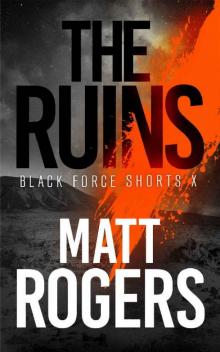 The Ruins
The Ruins Contracts
Contracts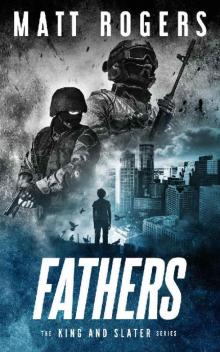 Fathers
Fathers Rogues: A King & Slater Thriller
Rogues: A King & Slater Thriller Weapons
Weapons Ciphers
Ciphers Lynx
Lynx Hunters
Hunters Of Superior Design
Of Superior Design The Hidden: A Black Force Thriller (Black Force Shorts Book 4)
The Hidden: A Black Force Thriller (Black Force Shorts Book 4) Blood Money
Blood Money The Hidden_A Black Force Thriller
The Hidden_A Black Force Thriller Monsters
Monsters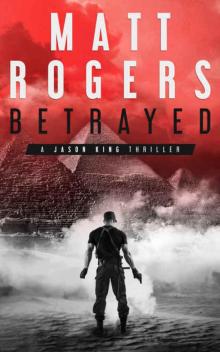 Betrayed: A Jason King Thriller (Jason King Series Book 4)
Betrayed: A Jason King Thriller (Jason King Series Book 4)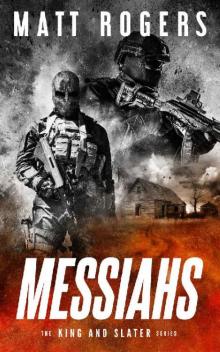 Messiahs
Messiahs The Wicked_A Black Force Thriller
The Wicked_A Black Force Thriller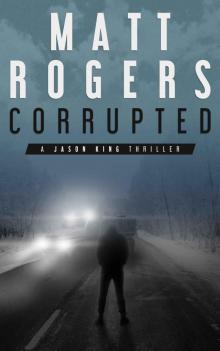 Corrupted: A Jason King Thriller (Jason King Series Book 5)
Corrupted: A Jason King Thriller (Jason King Series Book 5) The Jason King Series: Books 1-3
The Jason King Series: Books 1-3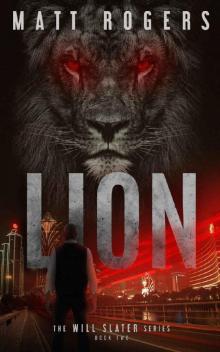 Lion
Lion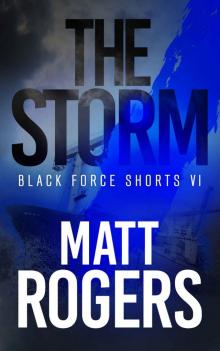 The Storm: A Black Force Thriller (Black Force Shorts Book 6)
The Storm: A Black Force Thriller (Black Force Shorts Book 6)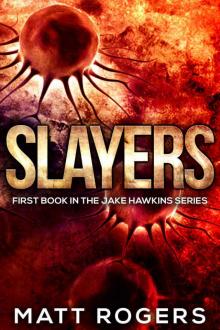 Slayers (Jake Hawkins Book 1)
Slayers (Jake Hawkins Book 1)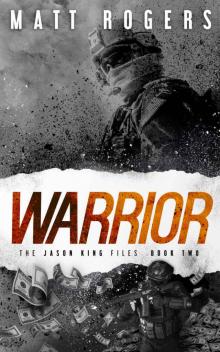 Warrior: A Jason King Thriller (The Jason King Files Book 2)
Warrior: A Jason King Thriller (The Jason King Files Book 2)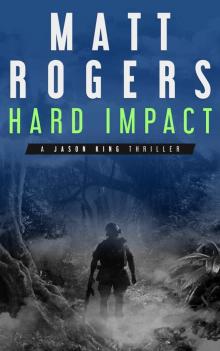 Hard Impact: A Jason King Operation (Jason King Series Book 0)
Hard Impact: A Jason King Operation (Jason King Series Book 0) The Wicked: A Black Force Thriller (Black Force Shorts Book 7)
The Wicked: A Black Force Thriller (Black Force Shorts Book 7)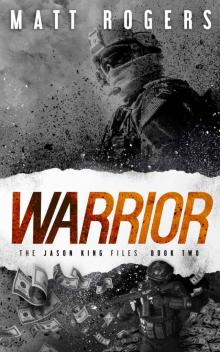 Warrior_A Jason King Thriller
Warrior_A Jason King Thriller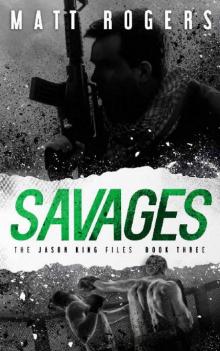 Savages: A Jason King Thriller (The Jason King Files Book 3)
Savages: A Jason King Thriller (The Jason King Files Book 3)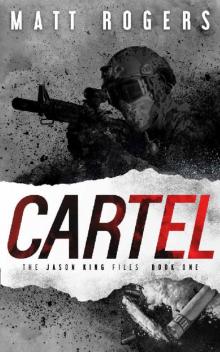 Cartel: A Jason King Thriller (The Jason King Files Book 1)
Cartel: A Jason King Thriller (The Jason King Files Book 1)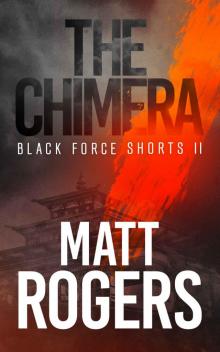 The Chimera_A Black Force Thriller
The Chimera_A Black Force Thriller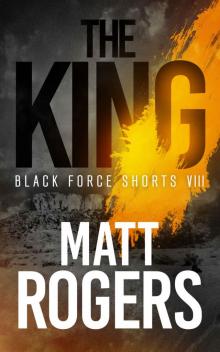 The King: A Black Force Thriller (Black Force Shorts Book 8)
The King: A Black Force Thriller (Black Force Shorts Book 8)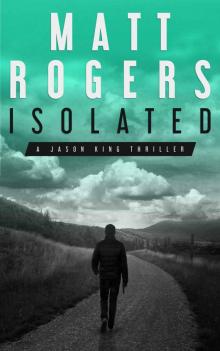 Isolated: A Jason King Thriller (Jason King Series Book 1)
Isolated: A Jason King Thriller (Jason King Series Book 1) The Victor: A Black Force Thriller (Black Force Shorts Book 1)
The Victor: A Black Force Thriller (Black Force Shorts Book 1)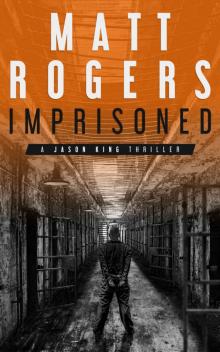 Imprisoned: A Jason King Thriller (Jason King Series Book 2)
Imprisoned: A Jason King Thriller (Jason King Series Book 2)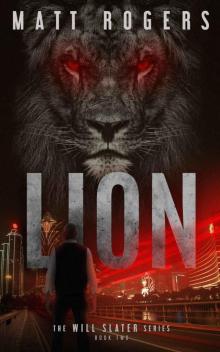 Lion: A Will Slater Thriller (Will Slater Series Book 2)
Lion: A Will Slater Thriller (Will Slater Series Book 2)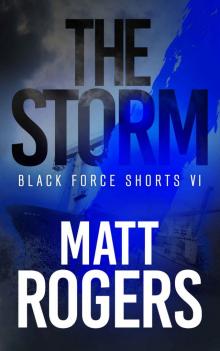 The Storm_A Black Force Thriller
The Storm_A Black Force Thriller Hunted: A Jason King Thriller (Jason King Series Book 6)
Hunted: A Jason King Thriller (Jason King Series Book 6)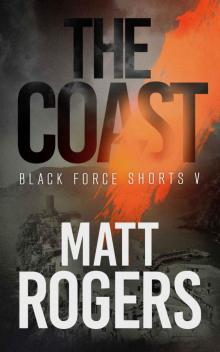 The Coast: A Black Force Thriller (Black Force Shorts Book 5)
The Coast: A Black Force Thriller (Black Force Shorts Book 5)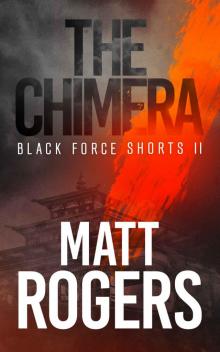 The Chimera: A Black Force Thriller (Black Force Shorts Book 2)
The Chimera: A Black Force Thriller (Black Force Shorts Book 2)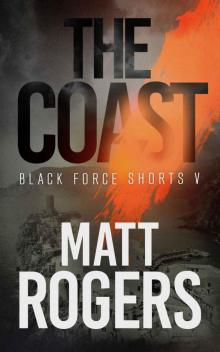 The Coast_A Black Force Thriller
The Coast_A Black Force Thriller